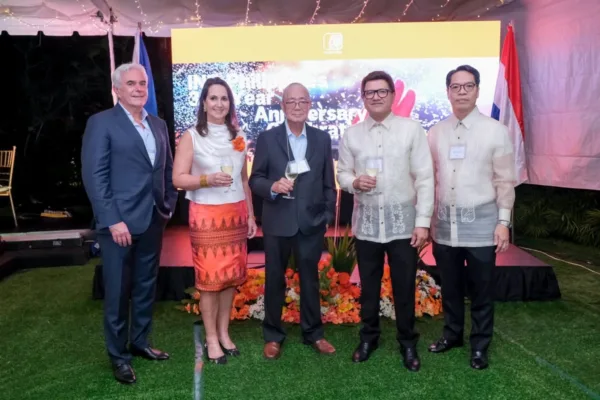The Department of Trade and Industry (DTI) has recently expressed its commitment to help streamline the Halal certification process for micro, small, and medium-sized enterprises (MSMEs).
In a media event, the DTI stated that it intends to create a roadmap to encourage MSMEs in the food and other industries to obtain Halal certification.

According to DTI Secretary Alfredo Pascual, among the immediate initiatives of the agency in developing the halal industry is encouraging MSMEs to certify their products and services as halal to cater to the growing global Muslim population of 1.9 billion.
“Our intention is to establish a number of these certifying bodies in partnership with those that are already doing it like in Malaysia and other countries. We can adopt their practices, and the standards will follow. (That’s) one of the first orders: to establish the certifying body,” Pascual said at the launching of the Halal Economy Festival and Investment Philippines Week held in Parañaque City earlier this week.
Aleem Siddiqui Guiapal, DTI Task Force Halal Industry Development and the program manager of Halal business development in the Philippines, for his part, said, “Having a halal seal is a value addition in the market niche. There are countries that require them, most are situated in East Asia and the Pacific and in the MENA (Middle East and North Africa) region.”
“Isinusulong po namin ang roadmap na magkaroon ng investment na magtalaga ng around 230 billion from 2023 to 2028, at para maitalaga din yung 120,000 jobs. (We are now pushing for a framework to ensure investments of over 230 billion from 2023 to 2028, producing about 120,000 employment),” he added.
The Prime Certification Body and the International Certification Center, both situated in Korea, are the only two Halal certifying organizations that are currently recognized by the DTI.
According to Rahmatol Mamukid, director of the Bureau of Muslim Economic Affairs, “Pag Halal certified ang product… which is, talagang confident ang mga kakain doon kasi it involves yung religion din, lalo na ‘yung matataas ang pananampalataya at talagang maselan sa pagkain. (Consumers may entirely trust a product when it is Halal certified.)”
This certification, anchored on religious beliefs, is extremely important for people with strong faith who are fastidious about their dietary choices.
“Halal certification goes beyond just food; it encompasses all aspects of life. Yung Halal, hindi lang sa pagkain yun,” Mamukid further clarified.
The DTI reports that 1,825 goods are currently certified as Halal.
There are also roughly between 10 to 12 million Filipino customers in this niche market.







